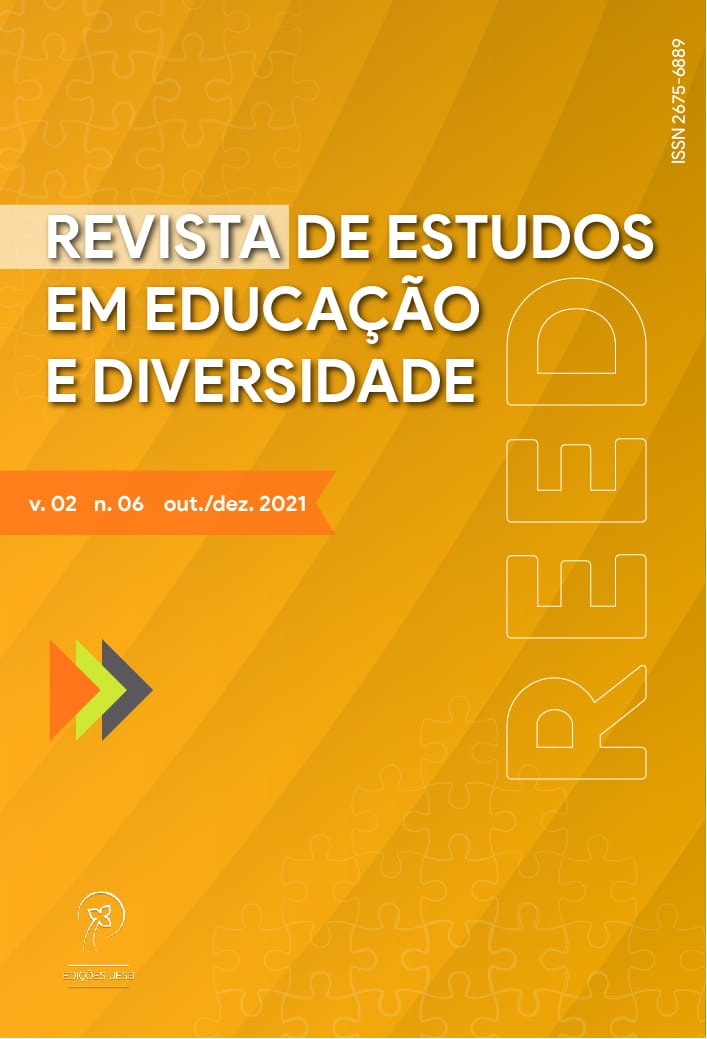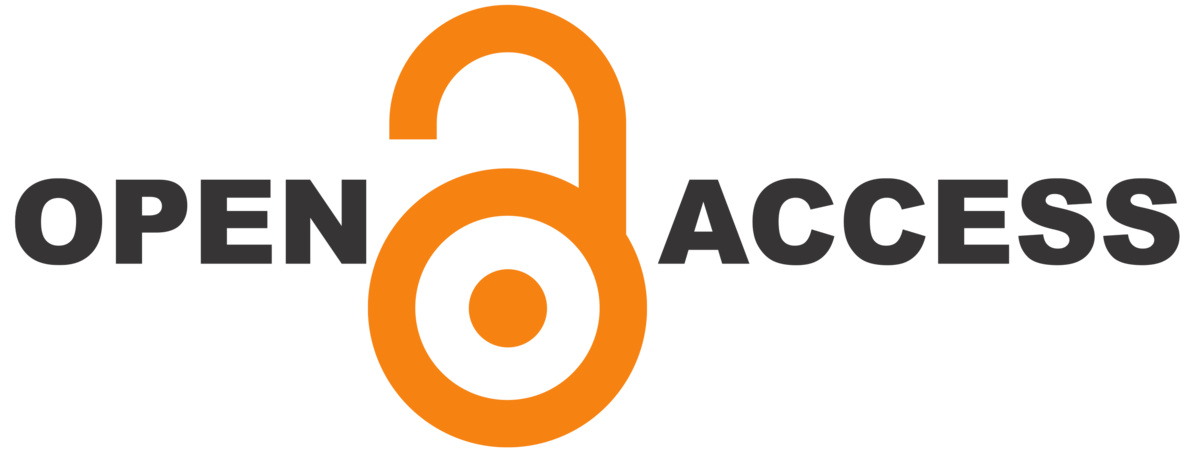MUSIC, PLAY, CHILDREN'S EDUCATION AND THE BRAZILIAN COMMON NACIONAL CURRICULUM BASE
DOI:
https://doi.org/10.22481/reed.v2i6.9824Keywords:
Music Education, Play, Music, Children's DevelopmentAbstract
The objective of this text is to approach the teaching of music in childhood, bringing discussions about the relationship between music and play in musical and child development. The teaching of music in basic education cuts across epistemological issues of music teaching in childhood, passing through the historically constructed conceptions of childhood, the contributions of developmental psychology, active pedagogies in music, as well as the relationship between childhood neurodevelopment from the interaction between games and musical learning. The study of the guidelines of the Brazilian Common National Curriculum Base (Base Nacional Comum Curricular - BNCC, in Brazil) in the early childhood education stage brings new possibilities for planning and executing music classes based on the learning and development objectives and other aspects recommended by the Base. Along this path, some suggestions for classes are presented, which can be expanded from the review of authors who point out ways to create a repertoire of pedagogical-musical activities with a playful perspective. In the daily life of the classroom, music and games are not dissociated, playing represents, in most cases, the means by which musical learning takes place. In this sense, This text proposes the articulation of reflections on how music and games interact in order to contribute to a full musical development in early childhood education.
Downloads
References
BRASIL. Lei nº 9.394, de 20 de dezembro de 1996. Estabelece as diretrizes e bases da educação nacional. Diário Oficial da União, Brasília, DF, 23 de dezembro de 1996.
BRASIL. Ministério da Educação e do Desporto. Secretaria de Educação Fundamental. Referencial curricular nacional para a educação infantil / Ministério da Educação e do Desporto, Secretaria de Educação Fundamental. Brasília: MEC/SEF, 1998.
BRASIL. Lei Nº 11.769, de 18 de agosto de 2008. Altera a Lei de Diretrizes e Bases da Educação, para dispor sobre a obrigatoriedade do ensino da música na educação básica. Diário Oficial da União, Brasília, DF, Seção 1, 19 de agosto de 2008.
BRASIL. Lei Nº 13.278, de 2 de maio de 2016. Altera o § 6º do art. 26 da Lei nº 9.394, de 20 de dezembro de 1996, que fixa as diretrizes e bases da educação nacional, referente ao ensino da arte. Diário Oficial da União, Brasília, DF, 03 de maio de 2016.
BRASIL. Ministério da Educação. Base Nacional Comum Curricular: Educação é a base. Terceira versão. Brasília: Ministério da Educação, 2017.
BRASIL. Decreto nº 1.331-A, de 17 e fevereiro de 1854. Approva o Regulamento para a reforma do ensino primario e secundario do Municipio da Côrte. Disponível em: https://www2.camara.leg.br/legin/fed/decret/1824-1899/decreto-1331-a-17-fevereiro-1854-590146-publicacaooriginal-115292-pe.html. Acesso em: 14 out. 2021.
CANCIONES DE MANOS Y DESDOS 1. Dimusicuenta Pedagogia Musical. 2018. 2:00. Disponível em: https://www.youtube.com/watch?v=ClZDmOtWHJM. Acesso em 10/10/2021.
CAVICCHIA, Durlei de Carvalho. O desenvolvimento da criança nos primeiros anos de vida. Univesp. Unesp. São Paulo - SP. 2010. Disponível em: http://acervodigital.unesp.br/handle/123456789/224. Acesso em: 30 out. 2021.
DAUD, Alliana. Jogos e Brincadeiras Musicais. São Paulo: Paulinas, 2009.
DIPIETRO, Janet A. Baby and the Brain: Advances in Child Development. Annu. Rev. Publ. Health. 2000. 21:455–71. Disponível em: https://www.researchgate.net/publication/12434076_Baby_and_The_Brain_Advances_in_Child_Development. Acesso: 13 set. 2021.
DODGE, Diane Trister; HEROMAN, Cate. Building Your Baby’s Brain: A Parent’s Guide to the First Five Years. Washington: Teaching Strategies, 2005.
FERRAZ, Roselane Duarte. A BNCC e os desafios aos profissionais da docência: debates necessários. Revista Brasileira de Educação de Jovens e Adultos. Salvador, v.7. ahead of print, 2019, p. 95-111. Disponível em: https://www.revistas.uneb.br/index.php/educajovenseadultos/article/view/9830. Acesso em: 25 jul. 2021.
FERREIRA, Lúcia Gracia; FERRAZ, Roselane Duarte. O contexto da educação, das políticas educacionais e do currículo: percepções a partir da Base Nacional Comum Curricular. Revista FORPROLL. V. 4, n. 1, 2020. p. 5-30. Disponível em: https://drive.google.com/file/d/1X2TqZ0kY_bFr3SAz4uHv3PfNzmUQF6zX/view. Acesso em: 25 jul. 2021.
FERREIRA, Lúcia Gracia; FERRAZ, Roselane Duarte; FERRAZ, Rita de Cássia Souza Nascimento. Diretrizes Curriculares Nacionais para formação de professores: desafios e configurações para as licenciaturas. PrepintSCIELO. Disponível em: https://preprints.scielo.org/index.php/scielo/preprint/view/2228/3704. Acesso em: 19 out. 2021.
FLETCHER, Janice. Making Connections: helping children build their brains. https://thevivacious7.wordpress.com/2007/05/15/making-connections-helping-children-build-their-brains/. Acesso em: 15 ago. 2020.
GÓMEZ, Margarita Maria Cardozo. A Prática Histórica no Processo de Constituição de Diferentes Concepções de Infância: de estados primitivos até a modernidade. Dissertação (Mestrado em Educação) - Faculdade de Educação, Universidade Estadual de Campinas. Campinas, 1994.
ILARI, Beatriz Senoi. Bebês também entendem de música: a percepção e a cognição musical no primeiro ano de vida. Revista da ABEM, Porto Alegre, V. 7, p. 83-90, setembro, 2002.
ILARI, Beatriz Senoi. A música e o cérebro: algumas implicações do neurodesenvolvimento para a educação musical. Revista da ABEM, Porto Alegre, V. 9, 7-16, setembro, 2003.
ILARI, Beatriz Senoi. A música e o desenvolvimento da mente no início da vida: investigação, fatos e mitos. Revista eletrônica de Musicologia. V. 9, Outubro, 2005. Disponível em: http://www.rem.ufpr.br/_REM/REMv9-1/ilari.html. Acesso em 13 out. 2021.
INEP. Competências Gerais da Nova BNCC. Disponível em: http://inep80anos.inep.gov.br/inep80anos/futuro/novas-competencias-da-base-nacional-comum-curricular-bncc/79. Acesso em 13 out. 2021.
JOLY, Ilza Zenker Leme. Música e Educação: reflexões sobre a importância da música nos processos educativos. In: Santiago, Diana; Vander Broock, Angelita Maria (Orgs.). Educação Musical Infantil. Salvador: PPPGMUS UFBA, 2011. P. 15-37.
MATEIRO, Tereza; ILARI; Beatriz (Org.). Pedagogias em educação musical [livro eletrônico]. Curitiba: InterSaberes, 2012.
NUNES, Ana Ignez Belém Lima; SILVEIRA; Rosemary do Nascimento. Psicologia da Aprendizagem: processos, teorias e contextos. Brasília: Liber Livros, 2009.
PAZ, Ermelinda A. Pedagogia musical Brasileira no Século XX: metodologias e tendências. Brasília: MusiMed, 2000.
PLACCO, Vera Maria Nigro de Souza. Apresentação. In: MAHONEY, Abigail Alvarenga; ALMEIDA, Laurinda Ramalho. Henri Wallon: Psicologia e educação. São Paulo: Edições Loyola, 2008.
PARIZZI, Maria Betânia. Reflexões sobre a Educação Musical na Primeira Infância. In: SANTIAGO, Diana; VANDER BROOCK, Angelita Maria (Orgs.). Educação Musical Infantil. Salvador: PPPGMUS UFBA, 2011. p 49-57.
SAN ANDRES, Carmem. Jugar, cantar y contar Juegos y caciones para los más pequenos. Madrid: Teleno Ediciones, 2008.
SANTIAGO, Diana. Educação Musical Infantil e Neurociência. In: SANTIAGO, Diana; VANDER BROOCK, Angelita Maria (Orgs.). Educação Musical Infantil. (ORGS). Salvador: PPPGMUS UFBA, 2011. P. 38-48.
SCHNEIDER, Roseléia. Brincando e Compreendendo o Mundo. Revista de Ciências Humanas. Frederico Westphalen, V. 5. n. 5. p 1-24, 2004.
WHITEBREAD, David. Free play and children's mental health. The Lancet. Child &Adolescent Health. Volume 1, n. 3. P 167-169, 2017. Disponível em: https://www.thelancet.com/action/showPdf?pii=S2352-4642%2817%2930092-5. Acesso em: 20 out. 2021.
Downloads
Published
How to Cite
Issue
Section
License
Copyright (c) 2021 Revista de Estudos em Educação e Diversidade - REED

This work is licensed under a Creative Commons Attribution 4.0 International License.
You are free to:
Share - copy and redistribute the material in any medium or format; Adapt - remix, transform, and build from the material for any purpose, even commercially. This license is acceptable for Free Cultural Works. The licensor cannot revoke these freedoms as long as you follow the terms of the license.
Under the following terms:
Attribution - You must appropriately give credit, provide a link to the license, and indicate if any changes have been made. You may do so in any reasonable way, but not in a way that suggests that you or your use is endorsed by the licensor.
There are no additional restrictions - You cannot apply legal terms or technological measures that legally restrict others to make any use permitted by the license.












